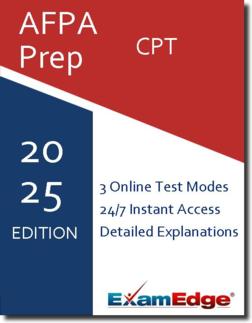AFPA CPT (AFPA-CPT) Practice Tests & Test Prep by Exam Edge - Blogs
Based on 29 Reviews
- Real Exam Simulation: Timed questions and matching content build comfort for your AFPA CPT test day.
- Instant, 24/7 Access: Web-based AFPA Certified Personal Trainer practice exams with no software needed.
- Clear Explanations: Step-by-step answers and explanations for your AFPA exam to strengthen understanding.
- Boosted Confidence: Reduces anxiety and improves test-taking skills to ace your AFPA Certified Personal Trainer (AFPA-CPT).



